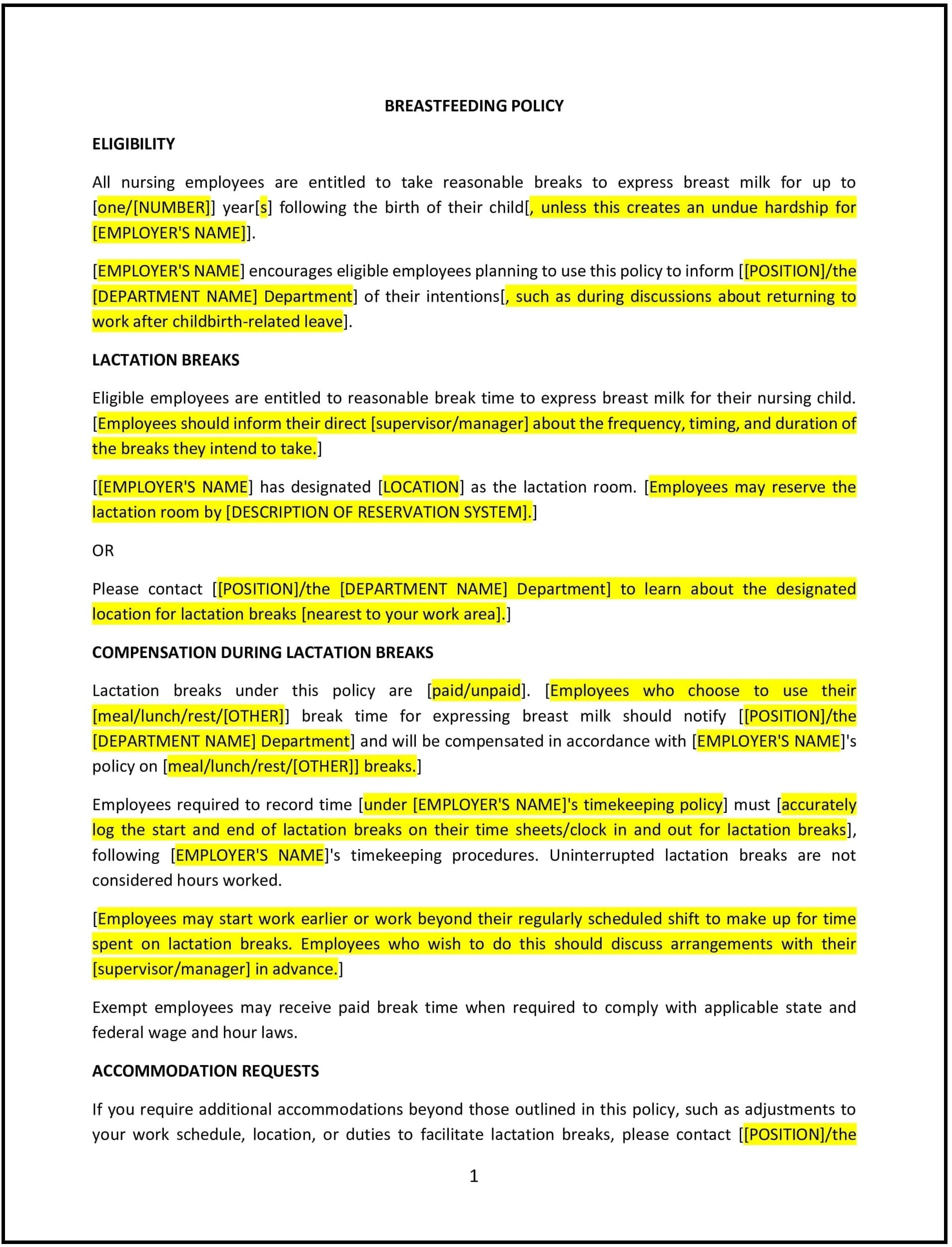Breastfeeding break policy (Georgia): Free template
Got contracts to review? While you're here for policies, let Cobrief make contract review effortless—start your free review now.

Customize this template for free
Breastfeeding break policy (Georgia)
This breastfeeding break policy is designed to help Georgia businesses support nursing employees by providing reasonable accommodations for breastfeeding or expressing milk during work hours. The policy outlines guidelines for break scheduling, designated spaces, and employee responsibilities, ensuring a supportive work environment for nursing mothers.
By implementing this policy, businesses can promote employee well-being, support family-friendly practices, and foster a culture of inclusivity and respect.
How to use this breastfeeding break policy (Georgia)
- Provide reasonable break times: Establish guidelines for employees to take reasonable breaks for breastfeeding or expressing milk. Specify that these breaks should align with the employee’s needs while minimizing workplace disruptions.
- Designate private spaces: Ensure that a private, non-bathroom space is available for nursing or pumping. The space should be clean, comfortable, and free from intrusion.
- Communicate scheduling flexibility: Allow flexibility in scheduling breastfeeding breaks, enabling employees to coordinate with their supervisors to balance work responsibilities and personal needs.
- Outline employee responsibilities: Encourage employees to communicate their needs for breastfeeding breaks in advance to facilitate planning and avoid workplace conflicts.
- Address storage of expressed milk: Provide guidelines for safely storing expressed milk, such as access to refrigeration or allowing employees to bring personal coolers.
- Promote awareness: Educate managers and staff about the policy to ensure understanding and cooperation in creating a supportive environment.
- Review and update regularly: Periodically review the policy to align with Georgia-specific regulations, workplace dynamics, and employee feedback.
Benefits of using this breastfeeding break policy (Georgia)
Implementing this policy provides several advantages for Georgia businesses:
- Supports employee well-being: Accommodating nursing employees promotes physical and emotional health for mothers and their babies.
- Enhances employee retention: Family-friendly policies help businesses retain valuable employees by supporting their personal needs.
- Promotes inclusivity: The policy fosters an inclusive workplace culture that respects diverse needs and experiences.
- Reduces absenteeism: Providing adequate support for nursing employees can help reduce stress-related absenteeism or turnover.
- Reflects Georgia-specific considerations: Tailoring the policy to Georgia’s unique cultural and regulatory landscape ensures relevance and practicality.
Tips for using this breastfeeding break policy (Georgia)
- Communicate the policy: Ensure all employees, particularly nursing employees and their supervisors, are aware of the policy and understand how to use it.
- Maintain privacy: Respect employees’ privacy when arranging breastfeeding accommodations, ensuring that the designated space is secure and discreet.
- Train managers: Provide training for managers to handle breastfeeding accommodation requests with sensitivity and professionalism.
- Monitor and adjust: Gather feedback from employees using the policy to identify areas for improvement and address potential challenges.
- Provide resources: Offer information about lactation support, such as community resources or health professionals, to assist nursing employees.